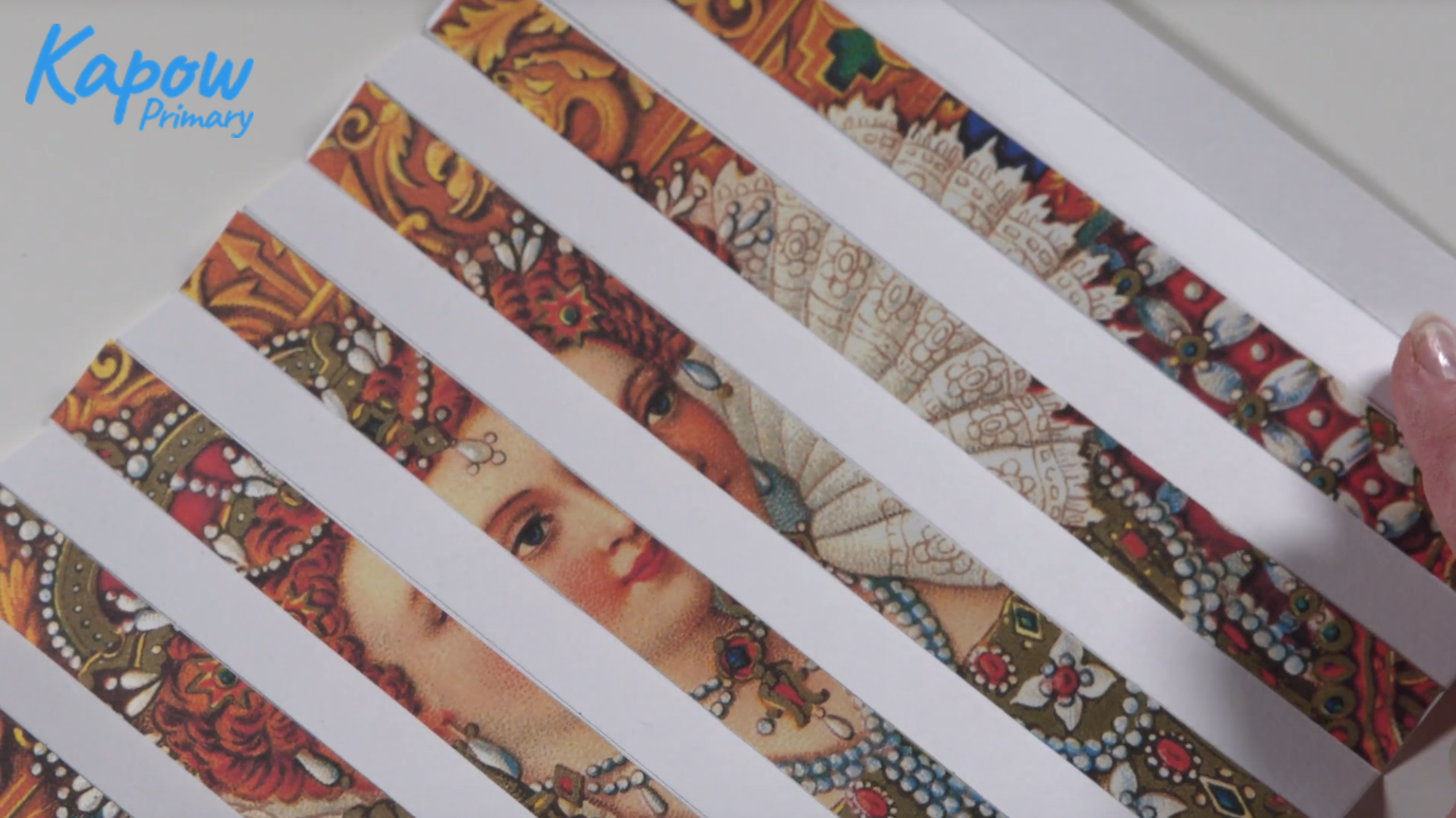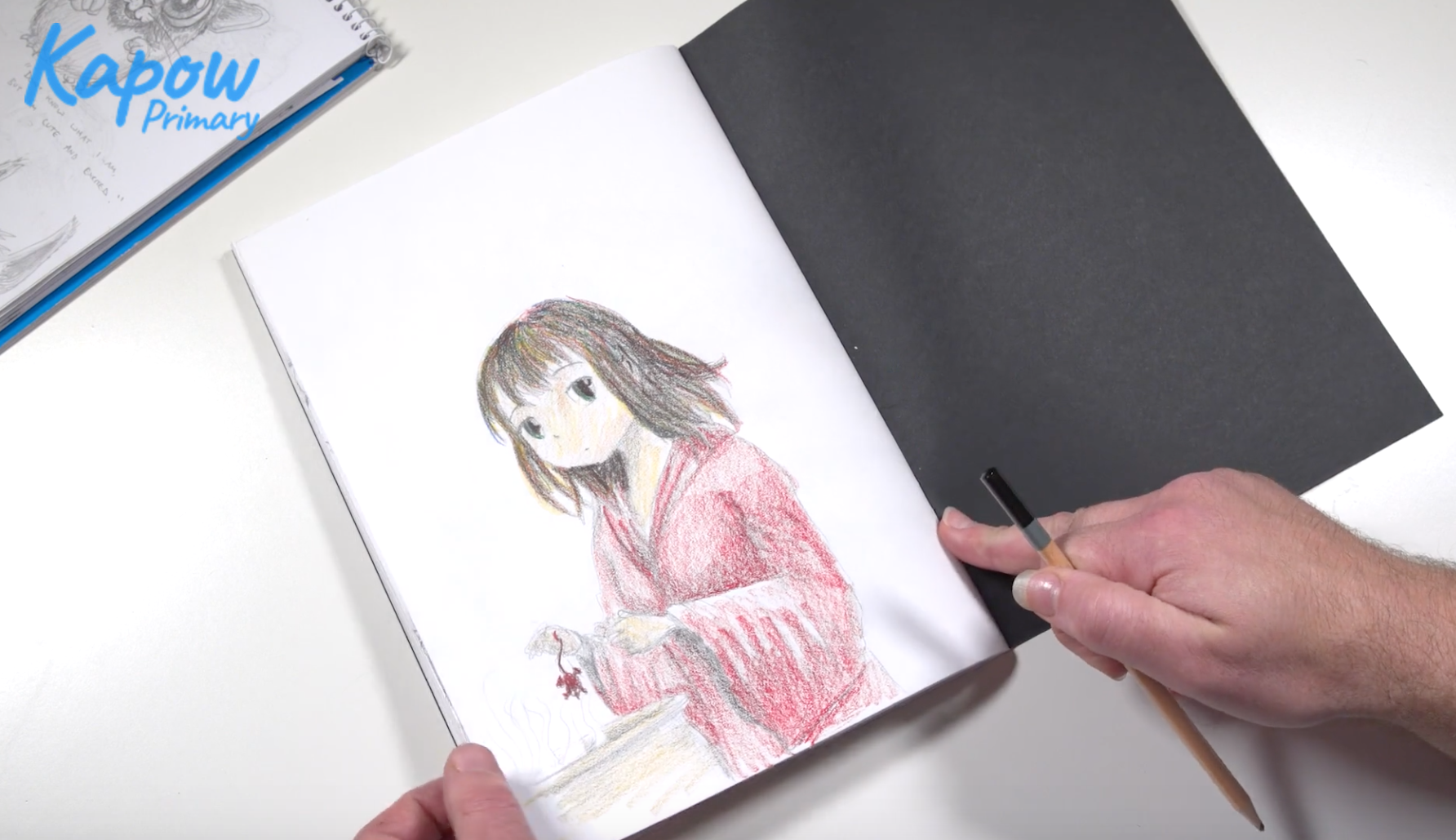Kapow Primary was born to support teachers with the more specialist subjects where they can often feel less confident in their subject knowledge. We are so excited to have Kapow on board as Sponsor Partners for this year's Big Draw Festival - and we couldn't wait to chat with Vicky and find out a little more about this extraordinary educational publisher and their Big Draw events this year...
Interview: Matilda Barratt in conversation with Vicky Cottrill-Gray.



Could you start by telling us about the story behind Kapow Primary? What are some of your aims and objectives as a school?
Kapow Primary was created to help schools and teachers to teach high-quality lessons across the more specialist subjects of the curriculum. We’re passionate about helping children receive a truly broad and balanced education, but we know that can be tricky for schools to achieve with tight curriculum time and limited budgets! So we collaborated with a small number of select primary subject specialists for Art, DT, Computing, Music, RSE and French to create really great, but easy-to-follow lessons, which are supported with bite-sized CPD videos for teachers to develop their skills and knowledge whilst they plan and teach.
And what is your role within Kapow Primary?
I am the initial creator of Kapow Primary and I look after all the content side of things, so that includes working alongside our fab specialists and internal team of ex-teachers to plan, review and create everything that we make, from lesson plans to videos to presentations for the classroom. I’m also always working on evolving and developing Kapow Primary to ensure we keep giving teachers and schools exactly what they need!
Here at The Big Draw we stress the importance of adjusting STEM to STEAM in the curriculum, ensuring creativity is not neglected and pupils experience a well-rounded educational experience. What roles do art and creativity play in Kapow, and how are they tied into the curriculum?
I completely agree with ensuring STEM is actually STEAM! Everything within our Art & Design subject is focussed on creativity and opening children’s minds up to diverse types of existing art, as well as the opportunities that offers. With cultural capital being a buzzword recently, we’ve tried really hard to bring art to life – perhaps for children who don’t get the chance to visit art galleries or have many books at home – in a way that makes art accessible and enjoyable for all. Our lessons cover all of the requirements of the National Curriculum, with each year group featuring lessons to explicitly develop the formal elements of art and art & design skills. The remaining units of lessons then offer opportunities to further develop and apply these skills. Many of our lessons offer great cross-curricular opportunities too.



Why do you think the next generation of makers and creators are so important?
As a country we’re known for our creativity in art, craft and design, and the arts contribute significantly to our economy. That, along with the joy and inspiration people take from both making and appreciating art, is really valuable. So developing the next generation is vital in order for us to continue this, the possibilities of the new styles and techniques they could develop can only contribute to making the world a better, richer place!
Could you share your thoughts on the role of visual literacy across multiple disciplines and sectors?
Visual literacy is important across all curriculum areas. Our young people must learn to read an image and develop their own visual literacy. Many (if not all) subjects in the school curriculum represent information in visual forms. These might be maps, graphs, illustrations, infographics, and diagrams. They can be in the arts, science, geography, medicine, engineering, digital technologies and beyond, into our always-connected lives. If the school curriculum is text-based, it competes with the world outside which is largely visual. We all need visualisation skills. Visual literacy is what is seen with the eye and what is ‘seen’ with the mind. A visually literate person should be able to read and write visual language. This includes the ability to successfully decode and interpret visual messages and to encode and compose meaningful visual communications. Visual literacy is important in a multiplicity of jobs: surgeon, bus driver, engineer, choreographer, scientist, doctor, plumber, dressmaker, coder, architect, builder, designer, ceramicist – just to name a few! We are bombarded with images every day. Sometimes we 'look', but we don't 'see'. Visual literacy should be taught so that people do 'see'.
Do you draw? What role does drawing play in your life and work at Kapow?
I'm not very skilled at drawing. However, having worked with the specialists on our lessons, I have learnt a lot about how to draw and I'm certainly better than I was! On a personal level, I use drawing to plan my creative projects at home, and during lockdown I used some of the Kapow Primary lessons with my own children, and they produced some gorgeous work!



Do you believe in such a thing as a ‘happy accident’, and the power to learn or develop from our mistakes? Particularly within an educational setting…
Absolutely! I call them ‘brilliant mistakes’. Education and learning are so interwoven and getting things wrong is critical to learning. When we make mistakes we can analyse how and where we went wrong to then be able to understand something at a deeper level. I also think creativity often comes from doing things differently, which inevitably means getting something wrong first, or in fact many times, before making a new discovery. For me it’s more about the process than the product, and experimenting with different styles and genres is all part of that learning process.
How have you found these past months? Has it been difficult overcoming the many challenges brought about by the pandemic?
We have been supporting schools and teachers as best we can, and many have in fact had a focus on the more creative subjects when integrating their pupils back into school in September.
This year’s Big Draw Festival theme, The Big Green Draw: A Climate of Change, focuses on the relationship between people and our living environments and ecosystems, encouraging drawing as a means of positive activism. How does this resonate with Kapow Primary, and why do you think it’s important?
We actually have some Kapow Primary lessons which explore how drawing has been used to raise awareness of current issues, such as migration. I think it’s an important medium through which we can spread awareness and highlight issues in a more digestible and provocative way than the written word. I think it also helps teach children to stand up for what they believe in, but in an appropriate way, which aims to influence behaviours for the better. We have many lessons on the theme of the environment, using the natural world as inspiration for creative work, such as waves, landscapes and animals.



What motivated Kapow Primary to take part in The Big Draw Festival, and what do you hope to achieve?
We’ve been following the Big Draw for years and have always valued the work it does and its impact on younger generations, especially through the themes it covers. Some of our specialists have also taken part in it in the past and spoken highly of the festival. We were keen to join the conversation and contribute to making Art and Design a significant part of children’s learning, as well as provide teachers with fresh, creative and exciting ideas!
Finally, could you tell us a bit about your #BigGreenDraw events?
We made one of our Art and Design units free and available to any teacher interested in taking part in this year’s Big Draw, and then teamed up with one of our specialists – and long-time Big Draw Associate – Susan Coles to run a live stream during which she dived deep into our lessons and explored how they could be adapted to this year’s theme. You can access the unit of lessons here and watch Susan’s live stream here!
Thank you Vicky!

If you were inspired by this interview with Vicky and would like to find out more about Kapow Primary, head to their website here.
Registrations are now open for The Big Draw Festival 2020: A Climate of Change! Find out more about the benefits of becoming an organiser here and other ways to support The Big Draw's mission here.
